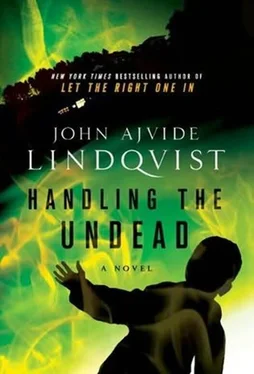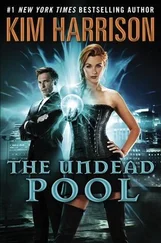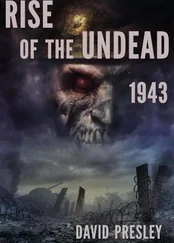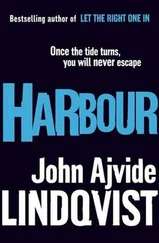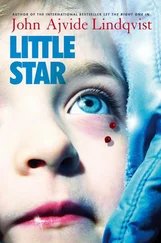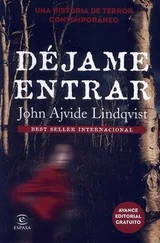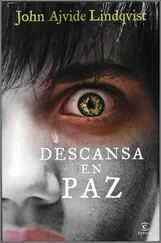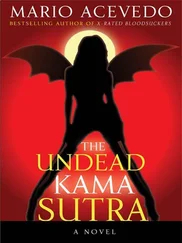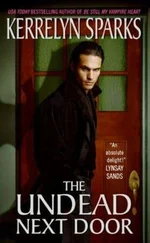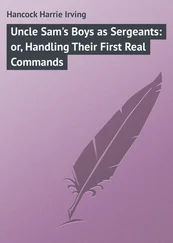John Lindqvist - Handling The Undead
Здесь есть возможность читать онлайн «John Lindqvist - Handling The Undead» весь текст электронной книги совершенно бесплатно (целиком полную версию без сокращений). В некоторых случаях можно слушать аудио, скачать через торрент в формате fb2 и присутствует краткое содержание. Жанр: Триллер, на английском языке. Описание произведения, (предисловие) а так же отзывы посетителей доступны на портале библиотеки ЛибКат.
- Название:Handling The Undead
- Автор:
- Жанр:
- Год:неизвестен
- ISBN:нет данных
- Рейтинг книги:4 / 5. Голосов: 1
-
Избранное:Добавить в избранное
- Отзывы:
-
Ваша оценка:
- 80
- 1
- 2
- 3
- 4
- 5
Handling The Undead: краткое содержание, описание и аннотация
Предлагаем к чтению аннотацию, описание, краткое содержание или предисловие (зависит от того, что написал сам автор книги «Handling The Undead»). Если вы не нашли необходимую информацию о книге — напишите в комментариях, мы постараемся отыскать её.
Handling The Undead — читать онлайн бесплатно полную книгу (весь текст) целиком
Ниже представлен текст книги, разбитый по страницам. Система сохранения места последней прочитанной страницы, позволяет с удобством читать онлайн бесплатно книгу «Handling The Undead», без необходимости каждый раз заново искать на чём Вы остановились. Поставьте закладку, и сможете в любой момент перейти на страницу, на которой закончили чтение.
Интервал:
Закладка:
big in reality, she said. But she saw them very clearly.'
They stared at the picture in silence, until David said, 'But even so she's smiling.'
'Yes,' Sture said. 'She is.'
Griiddo Island 17.45
Mahler moored at the dock in Graddo at a quarter to six. He walked as fast as he could and got to the store a couple of minutes before they closed. He bought UHT milk, a number of cans and packets of soup and sauces. Macaroni and tortellini. Skogaholm bread, which lasted forever, and soft cheese in a tube.
At the tap behind the store he filled his containers with fresh water. Then he remembered the wheelbarrow down by the harbour with 'Graddo Island Grocer' stencilled on it. Now he understood why it was there. He tried to decide what was better: go back to the harbour and get the wheelbarrow or try to carry the two containers-now weighing forty kilos-plus the two bags of food.
He decided to carry them.
After twenty minutes he was only half-way there-he had been forced to take a break almost every other minute-so he walked the rest of the way and fetched the wheelbarrow, pushing it back to where his goods were, and was down at the harbour in ten minutes.
It was past seven and starting to get dark. You could still see the bald head of the sun sticking up over the trees, but it was sinking rapidly. He would have to hurry; navigating back to the island in the dark without a map was beyond him. He got the bags containers in the boat, and had to take another longish break so his heart wouldn't start to race.
Then he said a prayer and pulled on the starter cord. The engine fired immediately. He steered to the pontoon filling station and found that it was closed. He moored the boat but left the engine on, examining the pumps. There was no pump that took cash or cards. The only possibility of getting fuel would be to go back up to the store again. He lifted the fuel container and rocked it from side to side. About half full.
He looked up at the road that led to the store. He just did not have the energy.
He was sure he could get back to the island with the fuel he had. The return trip was less certain.
Maybe there was fuel somewhere in the house on the island? He had seen a petrol container under the kitchen counter but had not checked to see if there was anything in it. Admittedly the water containers had been empty, but petrol would keep as long as you wanted.
It was highly likely that there was petrol in the container, Extra fuel for a situation like their own. Yes, of course. It was guaranteed there'd be petrol in the container. And if I here wasn't, they had oars.
He didn't like this. He should go back up to the store. Without fuel they were at the mercy of…
Of what?
Of nature. Fate.
But there was petrol in that container.
He got back in the boat. Drove away frorn the mainland and normality.
It was half past nine when he reached the area he was supposed to turn South. He didn’t recognize anything around him. The sun was just a dark red edge horizon and dusk gave the island an and altered appearance. He could still see the Manskar Island mast but thought it lay too far to the right.
Must have gone too far.
He turned the dinghy and went back the same way he had come. He could still not tell where he was. In the slowly dimming light it was getting increasingly difficult to judge distances. What was a single large island, and what was a collection of many small ones.
He bit his knuckles.
No map. No extra fuel. The only thing he had to go on was the handful of landmarks he knew, and none of them was in sight.
He turned the throttle as low as he dared without stalling and put the gears in neutral. Tried to' calm himself, gazing out over the islands, going over the route he had taken in his head. As long as he had an idea of where the merchant shipping routes were there was no risk that he would get completely lost. He looked around. A Finland ferry, lit up like a fun fair, was approaching from the Sea of Aland. Approaching rapidly.
He did not want to leave the shipping route but the ferry forced him to do so. He puttered in closer to the islands at low power, leaving the passage free. If the ferry collided with him, no shadow of blame would fall upon the captain-you could add lights to the list of things Mahler ought to have but didn't.
The ferry went by. Mahler could see people through the windows who did not have a care in the world. He longed to be with them. Just fly in through the window, land at the bar and order drinks until his wallet was empty; listen to vapid pop music and sneak glances at girls who had slid out of reach thirty years ago. Maybe listen to some lone Estonian tell his sad life story while the alcohol laid a forgiving veil over everything.
The ferry went by. Its lights went by and Mahler was left alone in the dark again.
He checked the time. Past ten o'clock. He feltthe petrol tank. Almost empty. When he shook it, the engine sputtered, but resumed its even puttering when he restored the tank to its upright position.
This is no catastrophe, he told himself.
If worse came to worst he could go ashore on some island and wait out the short hours of the night. Motor home the next morning or row, if need be. Maybe it was better to go ashore right now, while there was still fuel for the trip tomorrow.
Anna and Elias would get anxious of course, but they would manage.
And to be honest, would they even get worried?
Relieved, more likely.
He turned and puttered in to the nearest island to spend the night.
The Heath 20.50
It was not until the colour of the little window had faded to dark grey that Flora and Peter talked about going out. There had been no sounds or signs of consciousness for several hours but it was hard to be completely sure.
Flora had winced when Peter opened the door. He had looked undernourished before; now he looked emaciated. As soon as they were in his room he threw himself upon the fruit in her backpack. The room stank. As soon as Flora thought it-that the room stank of human waste-Peter said between bites, 'I know. Sorry. Haven't been able to empty it.'
The rag over the bucket had been reinforced with a blanket, but the odour still came through.
'Peter, you can't live like this.'
What's the alternative?
Flora chuckled. Peter's voice was loud and clear in her head now that everyone else was gone. They did not have to talk aloud as long as they stayed here.
I don't know, she thought.
No. We'll go out tonight, came the answer.
They waited. Amused themselves playing poker for matches, which mostly became a contest to see which one of them was better masking their thoughts. At the start they both knew each other cards, but after a while they each had to search for the other's pairs and incomplete straights among the static of numbers and songs th both used as shields.
When they had both become so good at masking that they we getting headaches trying to penetrate the noise, they tried turning off. Making a conscious effort not to read the other's thoughts.
'Which card?' Peter asked, and held out a card with its back Flora as he looked at it.
It came immediately: the seven of clubs. They tried several times, but it was no good. However hard Flora tried to put differ kinds of static between her head and Peter's, she could not block t telepathy. As long as the sender did nothing to deliberately distort their thoughts, it was impossible not to read them.
During the hours they spent in the basement she got to know, Peter better than ever before, probably better than he wanted her know him. He got to know her, too. And she knew what he thou he was seeing, and he knew what she thought of what she was seeing and by eight o'clock it was starting to get unbearable-a kind torture in the narrow basement. They glanced more and more oft out the window to see if it wasn't getting dark enough to go out.
Читать дальшеИнтервал:
Закладка:
Похожие книги на «Handling The Undead»
Представляем Вашему вниманию похожие книги на «Handling The Undead» списком для выбора. Мы отобрали схожую по названию и смыслу литературу в надежде предоставить читателям больше вариантов отыскать новые, интересные, ещё непрочитанные произведения.
Обсуждение, отзывы о книге «Handling The Undead» и просто собственные мнения читателей. Оставьте ваши комментарии, напишите, что Вы думаете о произведении, его смысле или главных героях. Укажите что конкретно понравилось, а что нет, и почему Вы так считаете.
